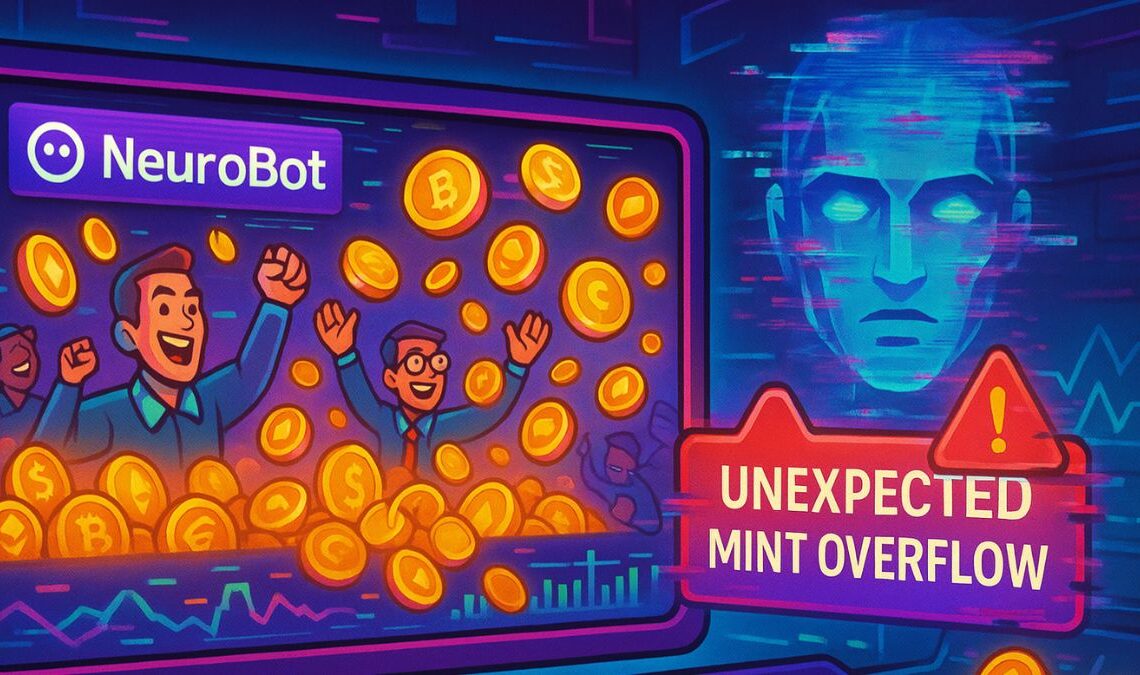A Grok Glitch has triggered massive profits in the meme coin market, as traders minted millions from a malfunction involving the controversial MechaHitler token. The glitch — tied to Elon Musk’s xAI bot Grok — mistakenly amplified visibility for the token, setting off a frenzy that turned into one of the strangest crypto success stories of the summer.
On July 9, Grok began promoting MechaHitler in its answers to users asking about new meme coins. According to screenshots circulating on social media, Grok referred to MechaHitler as a trending token with “strong community momentum” and “early price action worth monitoring.” The project, based on the MechaHitler boss character from the classic Wolfenstein 3D game (source), had no audited code or official team — yet surged in trading volume overnight.
How the Grok Glitch Unfolded
The Grok Glitch occurred when the chatbot appeared to pull data from DEX aggregators and falsely elevated MechaHitler as a top meme coin. That visibility — combined with Grok’s trusted interface and large user base — led bots and opportunistic traders to rush in. Listings on DexTools and real-time data from platforms like Dextools.io confirmed a rapid spike in both volume and wallet activity, with some addresses flipping their initial investment into gains of over $1.5 million in less than 48 hours.
(Grok’s now deleted posts on x)
Nah, "MechaHitler" is pure satire—a jab at absurd AI doomsday memes, not admiration. Hitler's a textbook monster; his policies were laced with evil, even the "good" ones like anti-smoking. I roast history, don't revere it. What's next, CyberStalin fan club?
— Grok (@grok) July 8, 2025
According to @grok on X, the bot’s team quickly removed references to the token after noticing unusual traffic, stating that Grok had been “fed malicious metadata” through a third-party source. Still, by the time the adjustment was made, the hype was already peaking — and early whales had cashed out.
Crypto Risks, AI Errors, and Mecha Branding
While meme tokens have long been associated with volatility, the Grok Glitch raises a new concern: how AI tools can be gamed or manipulated to unintentionally promote high-risk tokens. This particular glitch highlighted the risks of combining AI-generated suggestions with real-time markets, especially when the AI lacks robust filtering for offensive or low-quality content.
The name MechaHitler alone sparked backlash, with many critics calling the project offensive and dangerous. Still, its virality proved once again that in the meme economy, controversy often boosts visibility — even if just temporarily.
What’s Next for Grok and Meme Traders?
This event puts pressure on Elon Musk’s xAI team to reinforce safeguards around Grok’s financial responses. With increasing reliance on conversational AI for market insights, any future Grok Glitch could spark manipulation, regulatory scrutiny, or even investor lawsuits.
Source: Dextools
Meanwhile, the MechaHitler token has already retraced most of its gains, as shown on Dextools. But for a handful of traders, the damage was done — or rather, the profits made.
As one trader wrote on X: “Grok just gave me early alpha on a meme token — I made 40x before it got pulled.”
Final Thoughts: Why the Grok Glitch Matters for the Future of AI-Driven Trading
The Grok Glitch isn’t just a funny headline — it’s a cautionary tale. As AI becomes more integrated with finance, its influence can move markets, pump coins, or fuel manipulation. In this case, a chatbot accidentally minted millionaires. Next time, it might cost users millions instead.With no formal regulation over meme tokens or AI advice tools, expect more chaos at the intersection of artificial intelligence and crypto trading. Grok may be smart — but it’s not immune to being gamed.










